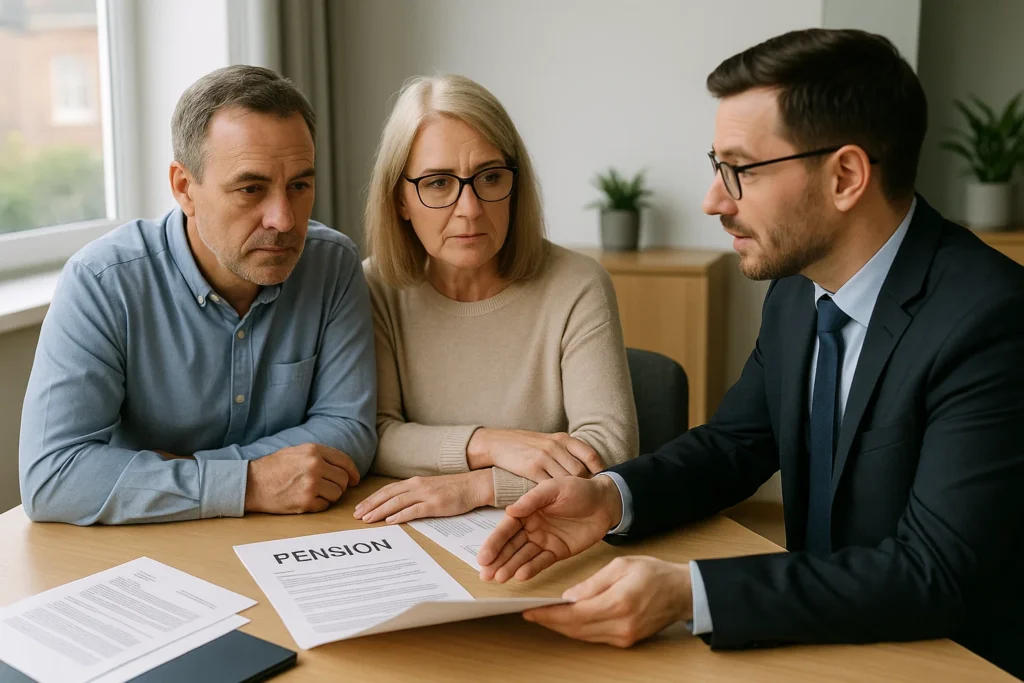If you are reading this, you are probably worried about money and uncertain about your financial future. You may be juggling multiple letters from creditors, worrying about how to pay the bills, or avoiding calls. This is a position many people find themselves in. This may be a time in life when unsecured debts have become overwhelming, disrupting your sleep and straining your relationships. At this stage, planning your future may seem futile.
Exploring insolvency options may feel daunting, but it may be a practical and responsible step toward ending the relentless calls from creditors. An Individual Voluntary Arrangement (IVA) provides a clear, time-limited repayment plan. This option is not about failure; it is a structured solution for people who have tried to manage debts but need formal support to make repayments affordable and settle their debts.
In this blog, we’ll explain what an IVA is, how it could affect your pension and UK benefits, and what to expect when you apply for an IVA. We’ll provide clear, practical information to help you make an informed decision. If you need personal help, My Debt Plan can guide you through your options.
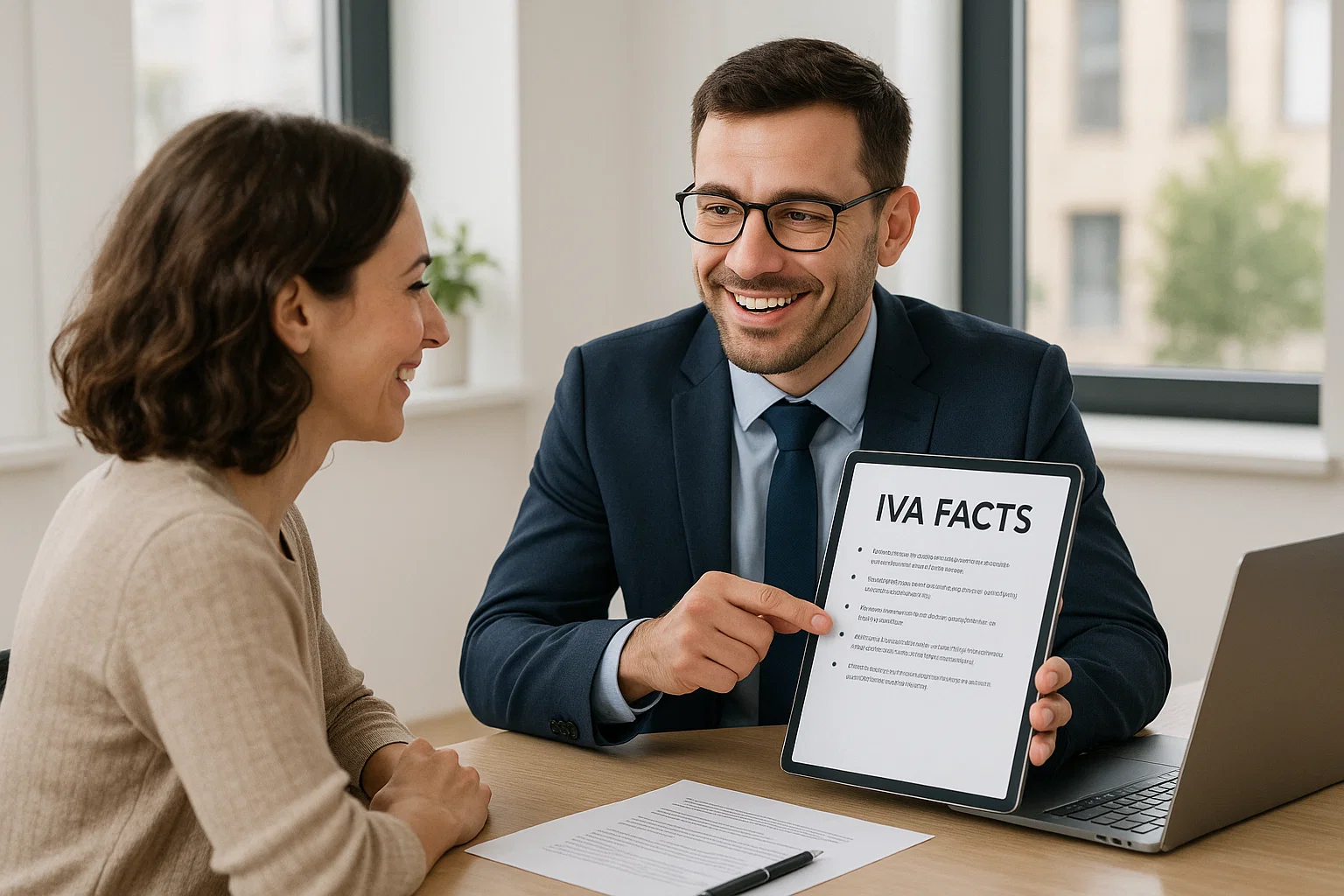
Quick facts
Here are a few quick facts to get you started on your IVA journey:
- IVA term: typically, five to six years.
- Credit record affect: an IVA typically appears on credit files for six years from the start date or until completion/annulment.
- Pensions: workplace pension contributions generally continue. State Pension rights are not a lump sum asset for creditors.
- Action: get free pension advice and regulated financial advice if you have substantial pension assets.
What is an IVA?
An IVA is a formal agreement between you and your unsecured creditors to repay some or all your debts over an agreed period. An Insolvency Practitioner (IP) draws up and supervises the IVA.
The agreement includes all unsecured debts, such as credit cards, personal loans, and overdrafts, as well as some business debts. Secured debts, including mortgages, are excluded, except by special arrangement.
You make a single monthly payment based on your income, minus reasonable living expenses. Creditors vote on the IVA proposal; if 75% of the voting creditors by value accept it, the arrangement becomes binding for all creditors included in the proposal.
Once the IVA takes effect, included creditors generally cannot take further enforcement action for the covered debts. The repayment amount is not set in stone and may be recalculated if your circumstances change substantially, provided all creditors agree to any changes.
The IVA proposal includes the fees for setting up and managing the IVA. These fees will be included in your monthly payments.
Any qualifying unsecured debt remaining at the end of a completed IVA is usually written off.
Individual insolvencies are listed in the Individual Insolvency Register. Your credit reports will also display the transaction for six years from the start date to the completion date.
When is an IVA your best choice?
An IVA may be in your best interests if:
- Your unsecured debts have become unmanageable, and you have disposable income available to make realistic payments.
- You want a legally binding plan with a clear end date and creditor protection.
- You want to avoid bankruptcy and keep certain assets.
An IVA may not be right if:
- You have almost no disposable income. In this case, a Debt Relief Order or bankruptcy might be more suitable.
- Your debts are mainly secured, with only minor unsecured liabilities.
- You need immediate discharge of all debts and have significant protected assets. Here, bankruptcy or negotiation may be the better option.
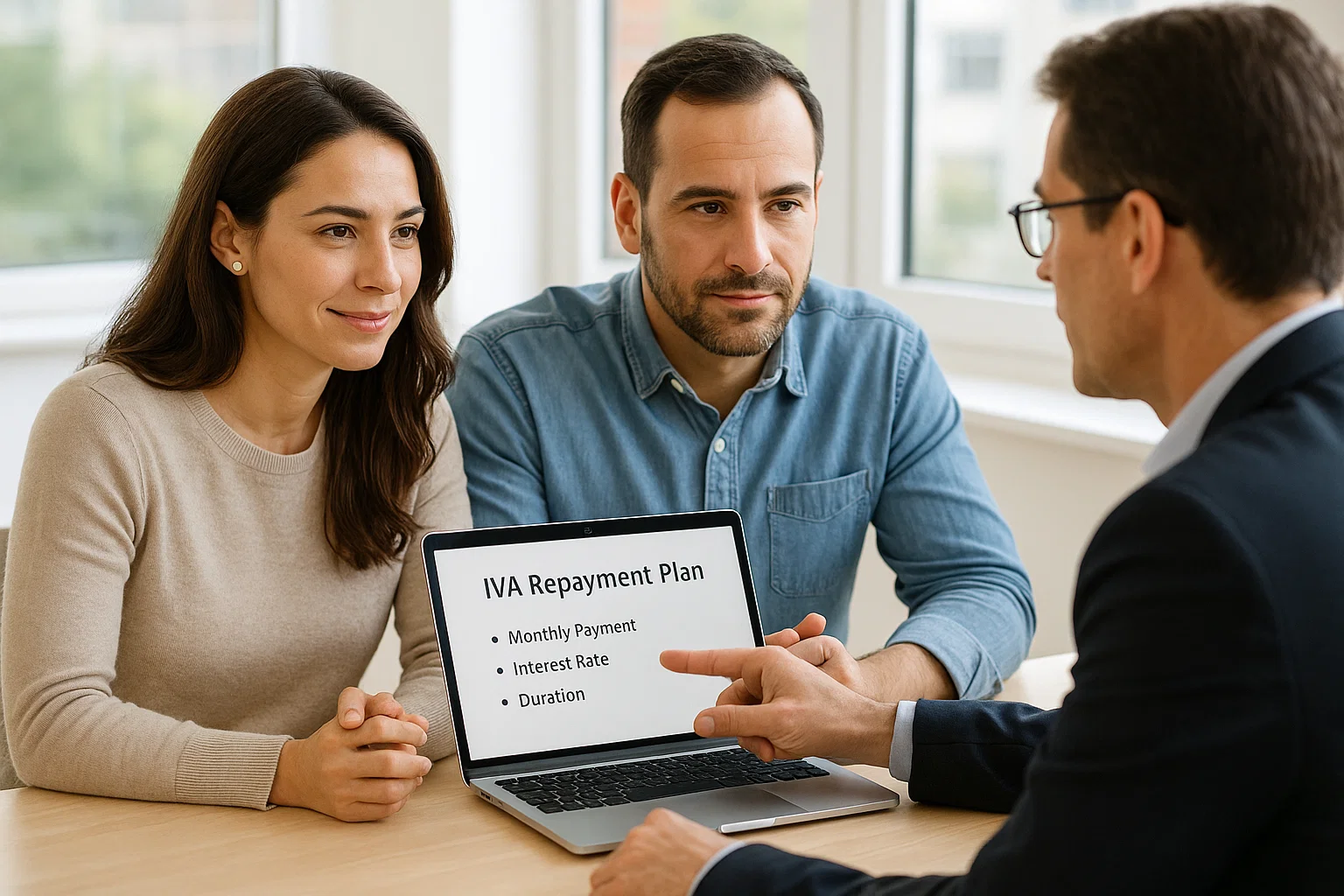
Key reasons to consider an IVA
- Single, affordable monthly payment: It combines multiple debts into one payment based on your income and reasonable expenses.
- Legal protection from creditors: Once accepted, creditors included in the IVA cannot pursue further recovery actions or pursue you for the debts covered.
- Debt write-off upon completion: Any qualifying unsecured debt remaining at the end of the IVA term is forgiven.
- Predictable end date: Typical terms are five to six years, providing a clear timeline to become debt-free.
- Asset protection potential: Unlike bankruptcy, an IVA can allow you to keep certain assets (including, in many cases, your home and workplace pension contributions), depending on the proposal.
- Fewer severe restrictions than bankruptcy: An IVA is usually less disruptive to employment and business activity and has fewer statutory restrictions.
- Creditor oversight and fairness: An Insolvency Practitioner supervises the IVA, and creditors vote on the proposal, helping make the outcomes more acceptable to both parties.
- Flexibility: IVAs can include arrangements for one-off lump sums, reduced monthly payments, or variations for changing circumstances (subject to creditor approval).
- Better for mortgage/credit prospects over the long term: Some lenders prefer to see a completed IVA rather than a bankruptcy on record, though both impact credit for years.
- Suitable when alternatives are inappropriate: If you don’t qualify for a DRO, can’t afford repayment in full, or want to avoid bankruptcy, an IVA can be the appropriate middle path.
Will an IVA affect my pension?
Most workplace pension contributions continue during an IVA and are usually safe from interference. State Pension entitlement is not an asset creditors can take. Personal pension pots (SIPPs, stakeholder pensions) are also protected during the period in which you cannot access them.
Pension income you already receive, such as annuity or drawdown payments, will be counted as income and included in IVA payment calculations. In rare cases where a pension pot is accessible and substantial, the IVA proposal may request a contribution; this is uncommon and comes with tax implications.
Seek free pension advice and regulated financial advice before you apply for an IVA.
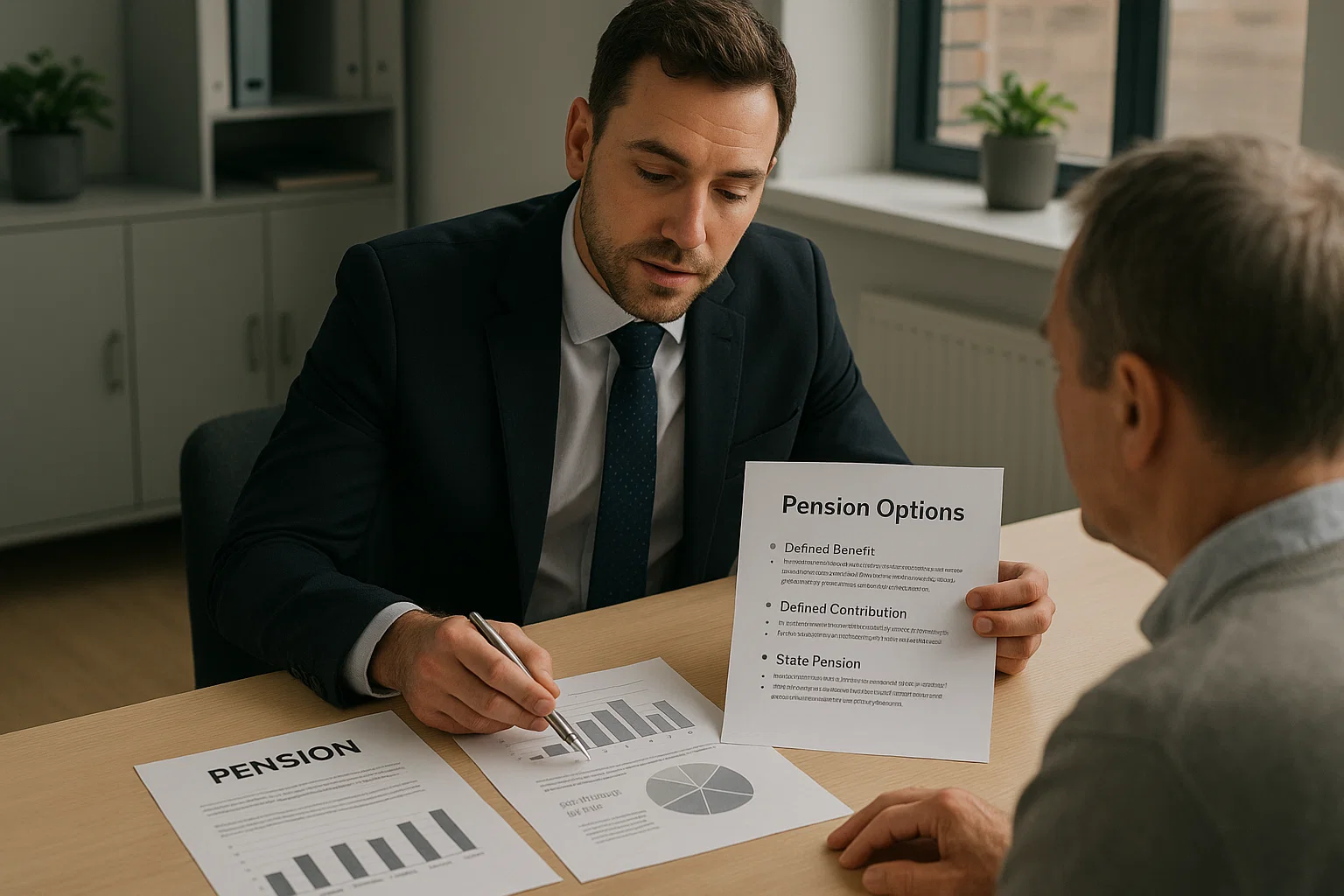
Pension Types
There are several pension types:
- Workplace defined contribution (DC) pension: Your employer and/or you pay into a pot. Many employers offer employees this benefit.
- Workplace defined benefit (DB) pension: Often called final salary schemes. These promise a certain level of income upon retirement. These pensions enjoy a higher level of protection.
- Personal pensions: Including SIPP and stakeholder pensions you set up yourself or get transferred into. These pensions may be more flexible, but they also have access rules in place.
- State Pension: The government pension you get when you reach State Pension age. This is not a lump asset that creditors can take.
- Pension income: An annuity or drawdown payments you already receive count as income in the IVA budget.
Why the type matters
- Employer-run pensions, including the payroll deductions, usually carry legal and trustee protections. The contributions are considered part of your pay, so they are an allowable cost in your budget.
- Private pensions can be more complicated to access before pension age and may attract hefty tax charges if you withdraw funds early. That makes them less useful for creditors.
- Pension income you already receive is available and will be included as your income when calculating IVA payments.
- If your workplace pension is transferred out and becomes an accessible private pot, it could become available in an IVA. Transfers can alter protection, so be cautious and seek debt advice.
So, if you’re wondering “Will my personal pension be taken in an IVA?” The short answer is usually not while it is inaccessible, but it could be included if it is accessible and large.
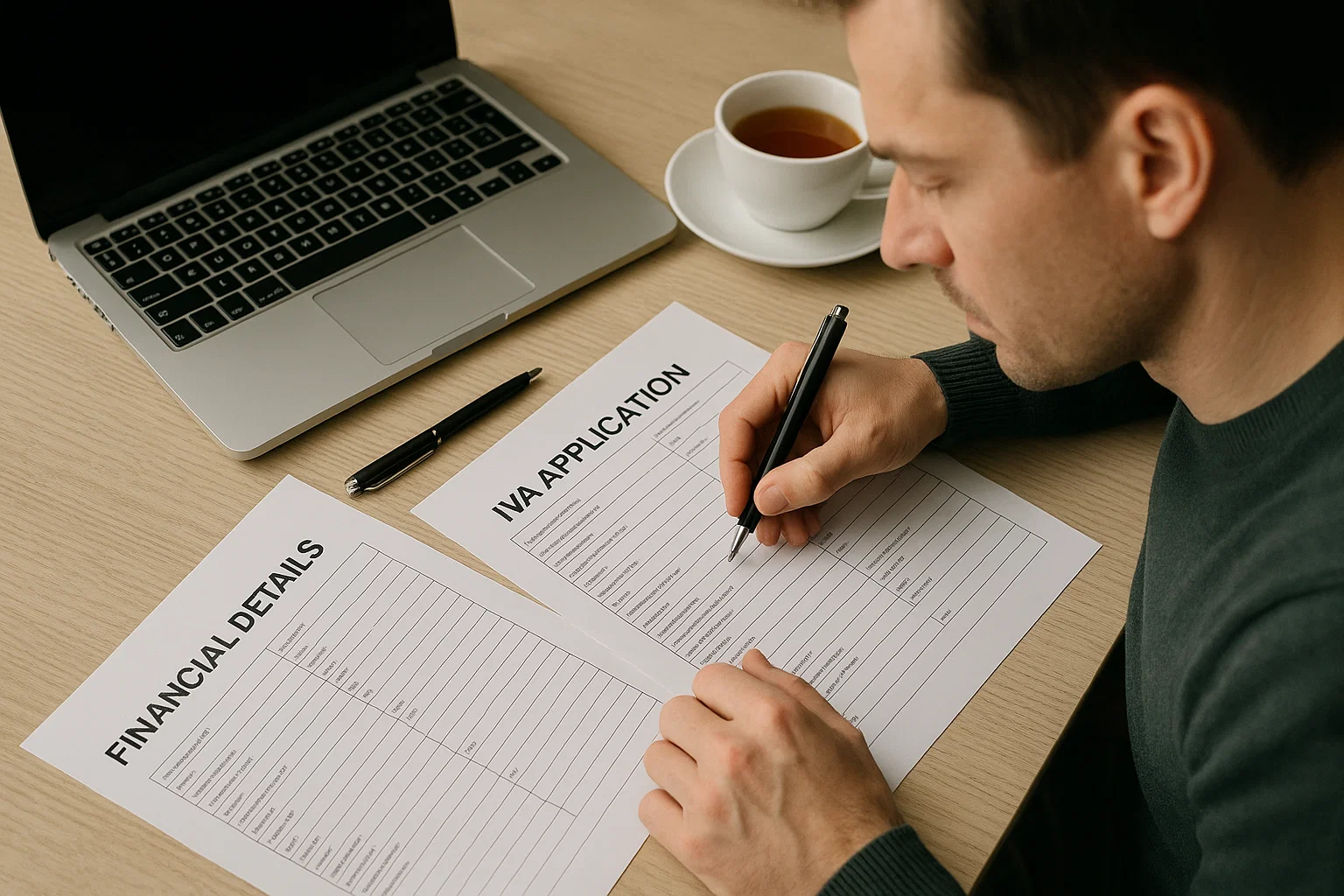
IVA vs Bankruptcy
Both IVA and bankruptcy are insolvency options, but they differ in their effects on pensions and other assets.
Bankruptcy
Bankruptcy trustees will investigate assets and transactions that occurred before the bankruptcy. Protected pension rights typically remain outside the bankruptcy estate, but trustees may review this if pension funds were recently withdrawn or transferred. Bankruptcy creates a public record and imposes restrictions that may be more severe than those associated with an IVA.
IVA
An IVA is a formal agreement with creditors. It is designed to allow you to retain certain assets and pay what you can. Workplace pension contributions typically continue, and pension pots are protected unless they are accessible and included in the proposal.
Which is better?
The short answer is that the better option is the one that best fits your personal circumstances. It is advisable to seek debt advice from an advisory service and a regulated financial adviser before taking either course of action.

Disclosures when applying for an IVA
You must tell your IP about all pensions, preserved pension rights, any pension transfers, and any pension income you receive. You are legally obliged to disclose all income sources. Failure to disclose can invalidate the IVA and result in legal consequences.
Required documents
The IP will want your pension statements, scheme names, current pot values, annuity contracts, and transfer paperwork.
Note employer and employee contribution amounts.
Practical steps before you apply.
- Gather pension and employer-pension documents.
- Get free pension advice at:
Citizens Advice – debt and benefits guidance.
Money Helper / Pensions Advisory Service – free pension advice on pensions and retirement.
My Debt Plan- a debt advisory service to check IVA suitability and assist with applications.
- If you have significant pension pots, look for regulated financial advice from an FCA-authorised adviser.
- Ask the IP to explain how your pension capital would be treated and the tax consequences of withdrawals.
- Do not withdraw or transfer pension funds to avoid creditors. This may be treated as fraudulent.
Key Thing to Remember
For most people, workplace pension contributions and protected pension rights remain safe when you enter an IVA. Pension income already being paid will count as income in any IVA calculation. Personal pension pots that are inaccessible usually stay protected, although accessible pension capital can be considered in rare cases. Always get free pension advice and regulated financial advice before applying for an IVA. If you want help, My Debt Plan can assess your situation, explain debt solutions, and connect you to the right advisers.
Contact My Debt Plan for a free, confidential IVA suitability check and guidance on protecting your pension on 0161 464 0870.



